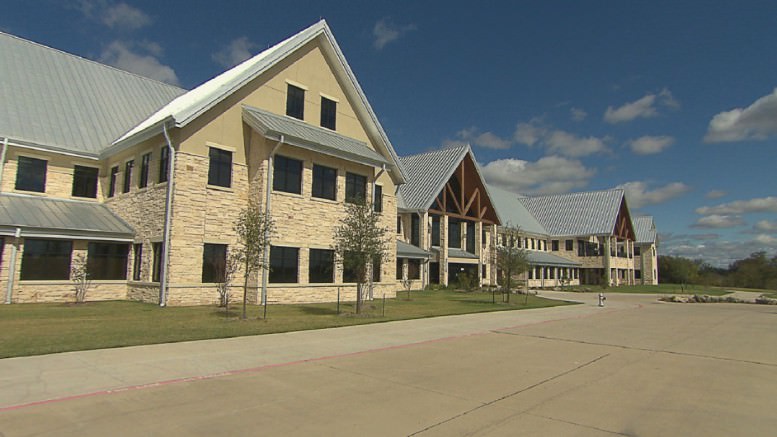A Canadian missionary organization based in Hamilton is facing allegations that nearly $94 million in charitable donations purportedly sent to India in the past eight years can’t be properly accounted for by either the Indian or Canadian governments.
Gospel for Asia Canada’s filings with the Canada Revenue Agency (CRA) show $93.5 million was transferred to India between 2007 and 2014, but Indian government documents show that no money from Canada was received by the charity’s Indian affiliates during the same period.
Pat Emerick, the head of Gospel for Asia Canada, is now named as one of the defendants in a U.S. class-action lawsuit launched last month in Arkansas alleging the multinational Gospel for Asia charity, which is based in Texas, has engaged in racketeering and fraud.
Gospel for Asia was created and is controlled by K.P. Yohannan, who was born in the southern Indian state of Kerala and is now based in Wills Point, Texas, about 30 kilometres east of Dallas. Yohannan is also listed as the founder and president of the board of Gospel for Asia Canada.
“This is entirely false, even absurd,” Emerick stated. “For more than 30 years, this ministry — with its partners overseas — has provided humanitarian assistance and spiritual hope to millions upon millions of people.”
Morrison conducted a meticulous review of Indian financial documents filed by Gospel for Asia with the help of an American auditor. He alleges that for some of the charitable categories cited by the organization, less than 1 per cent of money donated from developed countries was used for the stated intentions.
In a detailed 21-page financial analysis of Gospel for Asia prepared in November, Morrison alleges that as much as $128 million (U.S.) in worldwide donations over an eight-year period went “missing” in India.
Morrison also alleges that Gospel for Asia’s Indian branch and three related charitable affiliates in India showed $56 million (U.S.) sitting in one Indian account as of March 2014, and another $152 million (U.S.) reported as cash-at-hand in other Indian bank accounts.
“K.P. Yohannan has taken hundreds of millions of dollars from western donors and put a majority of those funds in expensive profit-generating properties in Kerala,” Morrison claims in one of his reports, “and also let tens of millions of dollars accumulate in Indian banks, while continuing to beg for more on pretences that are simply not true.”
Garry Cluley, a recently ousted board member of Gospel for Asia Canada has also filed a complaint with the CRA. Cluley alleges he was dumped from Gospel for Asia’s board in December when he asked to see copies of documents that would show how the charity’s donations were being governed and spent.
Morrison and Cluley, as well as the U.S. lawsuit, allege that Gospel for Asia, either directly or through Indian affiliates, has used its charitable donations to build an extensive for-profit corporate empire in India that includes a private hospital, private schools, a college, a rubber plantation that cost $19 million (U.S.) to purchase, and even a professional soccer team based in Burma.
In addition, the lawsuit alleges Gospel for Asia spent $45 million (U.S.) to build its new state-of-the-art headquarters in Texas, with nearly half of the money coming from donations that had originally gone to India and were then sent back to the U.S.
“Generally, only in the event that an investigation results in the laying of criminal charges would the RCMP confirm its investigation, the nature of any charges laid and the identity of the individuals involved,” said RCMP spokesperson Annie Delisle.
A spokesperson for the federal government’s Canadian Anti-Fraud Centre, based in North Bay, would only confirm it received a complaint from Morrison. The centre — jointly managed by the RCMP, the Competition Bureau and the OPP — is the national repository for data and intelligence related to fraud.
Emerick stated that “all proper reporting has been done according to Indian law.” He also stated “the ministry has complied with all Canadian law for charities, and funds sent to the field have been accounted for.”
Indian law, meanwhile, requires charities to detail precisely where foreign contributions come from and precisely how the money is being used, in part because the Indian government is worried foreign charitable contributions could be used as a cover to fund political activities.
Morrison claims he was told by Gospel for Asia officials that the charity’s Canadian donation amounts had been lumped in with the U.S. donations sent to India, which is why they don’t show up in the Indian government filings.
Meanwhile, Gospel for Asia officials in the U.S. told an American evangelical financial accountability group last summer the charity didn’t exert any control over its Indian affiliates and how they spend the money.
Taken together, it suggests Canadian donations were lumped in with the American donations sent to India but the American charity didn’t exercise any control over the Indian affiliates receiving the money.
This would appear to be in violation of CRA’s rules which state that the Canadian charity must maintain control and direction of its donations and be able to account for how they have been spent, even when done through an intermediary.
Source: www.thestar.com





Be the first to comment on "Gospel for Asia Charity Facing Allegations of Fraud Totalling Nearly $94 Million"